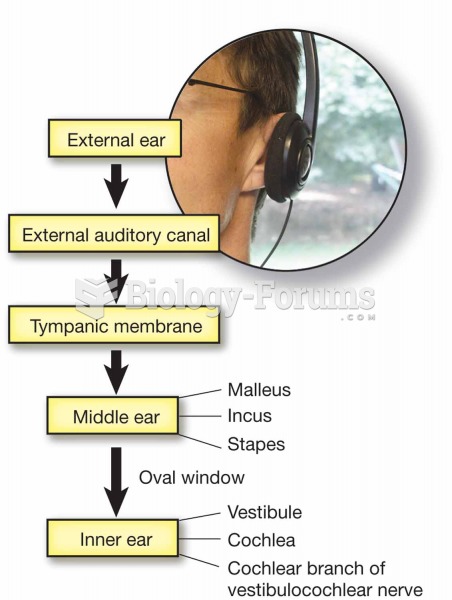|
|
|
The Romans did not use numerals to indicate fractions but instead used words to indicate parts of a whole.
A cataract is a clouding of the eyes' natural lens. As we age, some clouding of the lens may occur. The first sign of a cataract is usually blurry vision. Although glasses and other visual aids may at first help a person with cataracts, surgery may become inevitable. Cataract surgery is very successful in restoring vision, and it is the most frequently performed surgery in the United States.
On average, the stomach produces 2 L of hydrochloric acid per day.
Cutaneous mucormycosis is a rare fungal infection that has been fatal in at least 29% of cases, and in as many as 83% of cases, depending on the patient's health prior to infection. It has occurred often after natural disasters such as tornados, and early treatment is essential.
More than nineteen million Americans carry the factor V gene that causes blood clots, pulmonary embolism, and heart disease.







